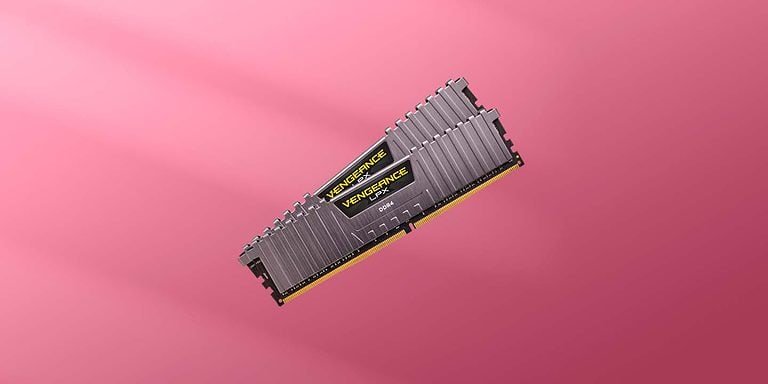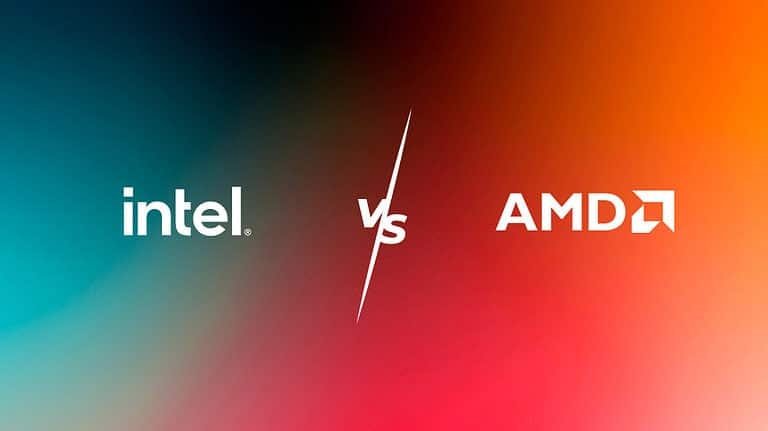Minimum PC requirements for Graphic Design
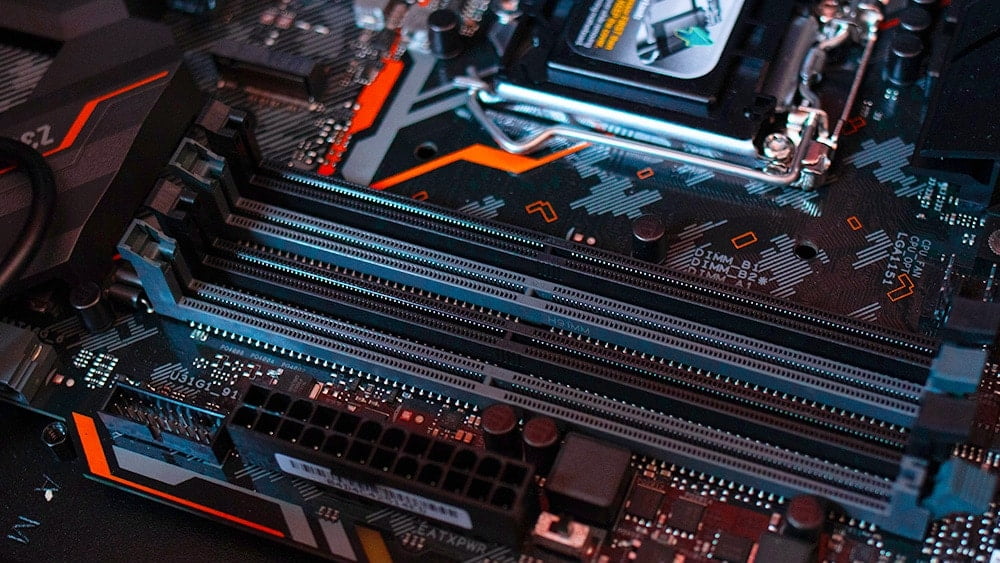
The minimum PC requirements for Graphic Design are usually much more demanding than for any other type of program. It is important, therefore, that when choosing a PC you take into account the requirements of the programs you are going to use and the tasks that you are going to perform
These technical requirements are updated every year when software companies update their products, but don’t worry, all the data you’ll find here reflects the minimum requirements demanded by manufacturers such asAdobe, Affinity or Corel for 2026.
In addition, I will give you some advice based on my more than 15 years of experience, since the minimum requirements are not always the most recommended if you want to work in an agile way and taking advantage of 100% of the functions of the best Graphic Design programs.
Minimum requirements for Photo Retouching

Photo retouching programs, along with 3D design programs, are the most demanding in terms of system requirements, especially in terms of RAM memory and the graphics card (GPU) needed to process the work we are doing.
The minimum system requirements for the main Photo Retouching applications available for Windows PCs are as follows:
| Photoshop CC | Affinity Photo 2 | Corel PaintShop Pro | |
|---|---|---|---|
| Operating system: | Windows 10 64-bit (v. 20H2) or later; LTSC versions not supported. | Windows 11 or Windows 10 update (May 2020 or later). Both 64-bit. | Windows 11 or Windows 10 (v. 1903 or later). Both 64-bit. |
| Processor: | Intel® or AMD with 64-bit support; 2 GHz or faster | Intel or AMD | Intel® Celeron G, AMD® Phenom II or higher |
| RAM: | 8 GB (≥ 16 GB recommended) | ≥ 8 GB | 4 GB ( ≥ 8 GB recommended) |
| GPU: | 1.5 GB of GPU memory (≥ 4 GB of GPU memory for 4k displays and greater). Compatible with DirectX 12. | Compatible with DirectX 10 or higher. Compatible with Direct3D 12.0 | DirectX 11 compatible (DirectX 12 recommended) |
| Monitor resolution: | 1280 x 800 display at 100% UI scaling (1920 x 1080 recommended) | 1280 x 768 or higher | 1366 x 768 or higher |
| Free space required: | 4 GB (≥16 GB recommended) | ≥ 1 GB | 3 GB (≥ 4 GB recommended) |
| Internet connection: | Necessary | Necessary | Necessary |
After using Photoshop for more than 15 years, to work as agile way with it you need to consider the recommended requirements, instead of the minimum ones.
The same is true for Affinity Photo and Corel PaintShop Pro. I have worked with these programs on computers that met the minimum requirements, and you could perceive that they slow down when performing certain tasks.
If you are starting in Graphic Design, meeting the minimum requirements may be enough, especially if you are still studying and do not want to spend a lot of money on a PC. On the other hand, if you are a professional, work with a PC capable of meeting the recommended requirements.
Recommended PCs for photo retouching programs
In case you are looking for a laptop, the Dell XPS 15 is a great option and far exceeds the recommendations of manufacturers. However, if you prefer an all-in-one desktop computer, then you won’t find better value for money than the Lenovo IdeaCentre AIO 3 that you can find on Amazon.
Minimum requirements for Illustration programs
Illustration tasks mainly require a good amount of RAM memory and an efficient graphics card to process your movements on the canvas and your strokes in real time, without delays.
The minimum system requirements for the main Illustration programs Available for Windows PCs are:
| Photoshop CC | Affinity Photo 2 and Affinity Designer 2 | Corel Photo-Paint | |
|---|---|---|---|
| Operating System: | Windows 10 64-bit (v. 20H2) or later; LTSC versions not supported. | Windows 11 or Windows 10 update (May 2020 or later). Both 64-bit | Windows 11 or Windows 10 (v. 21H1, 21H2 or later). Both 64-bit |
| Processor: | Intel® or AMD with 64-bit support; 2 GHz or faster | Intel or AMD | Intel Core i3/5/7/9 or AMD Ryzen 3/5/7/9, Threadripper, EPYC |
| RAM: | 8 GB (≥ 16 GB recommended) | ≥ 8 GB | 4 GB ( ≥ 8 GB recommended) |
| GPU: | 1.5 GB of GPU memory (≥ 4 GB of GPU memory for 4k displays and greater). Compatible with DirectX 12. | Compatible with DirectX 10 or higher. Compatible with Direct3D 12.0 | OpenCL 1.2 compatible with 3 GB VRAM |
| Monitor resolution: | 1280 x 800 display at 100% UI scaling (1920 x 1080 recommended) | 1280 x 768 or higher | 1280 x 720 or higher |
| Free space required: | 4 GB (≥16 GB recommended) | ≥ 1 GB | ≥ 1 GB |
| Internet connection: | Necessary | Necessary | Necessary |
I recommend meeting or exceeding the recommended technical requirements if you want to work without delay. In addition, I suggest that you use a good graphics tablet that faithfully captures your strokes.
If you do not have a good tablet, no matter how good a computer you have, you will suffer the delay in the capture of the trace, which can be quite frustrating.
Recommended PCs for Illustration programs
In the case of computers for illustration, the needs are very similar to those of photo retouching programs, but you may be interested in a convertible laptop that you can draw directly on, such as the HP Envy x360 or the Microsoft Surface Pro 7, both available on Amazon.
Minimum requirements for Vector Design programs
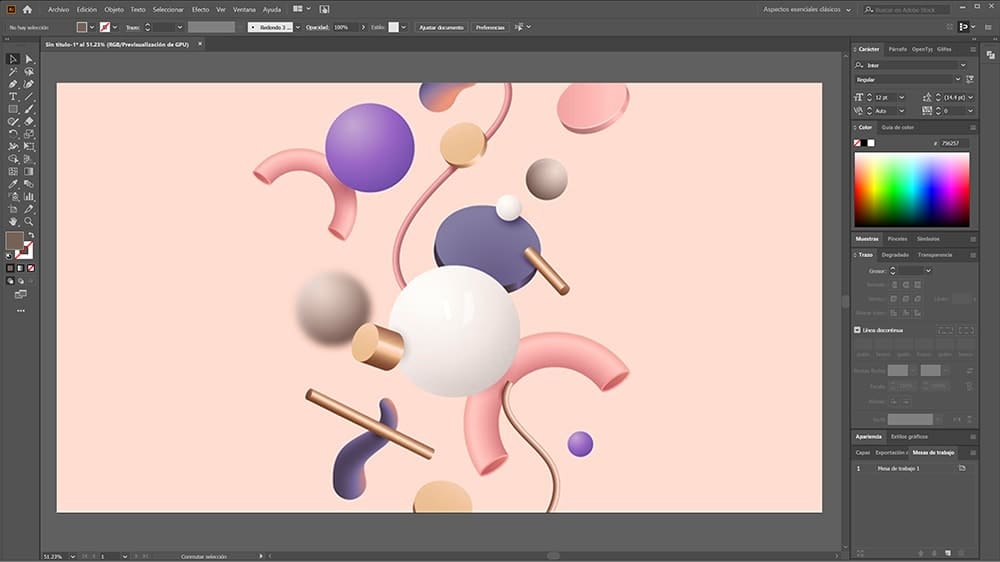
On paper, Vector Graphics programs are less demanding in terms of minimum requirements, but the actual requirement depends on the type of work you do with them.
If your projects are based solely on the use of simple vector elements, such as logo, icon, poster or banner design without images, the minimum requirements may be sufficient.
On the other hand, if in your designs you are going to include high resolution images, complex vector illustrations, or you are going to use dozens of artboards in each project; then it is better to go for the recommended requirements.
These are the minimum system requirements for the main vector graphics programs that you can find for Windows PC:
| Illustrator CC | Affinity Designer 2 | CorelDRAW | |
|---|---|---|---|
| Operating system: | Windows 11 and Windows 10 (64-bit)(V21H1, and V20H2). Windows Server V1607 (2016) and V1809 (2019). | Windows 11 or Windows 10 update (May 2020 or later). Both 64-bit | Windows 7 or higher |
| Processor: | Intel multi-core (with 64-bit compatibility and with SSE 4.2 or later) or AMD Athlon 64 processor ( SSE 4.2 or later). | Intel or AMD | Intel Core i3/5/7/9 o AMD Ryzen 3/5/7/9, Threadripper, EPYC |
| RAM: | 8 GB of RAM (≥16 GB recommended) | ≥ 8 GB | ≥ 4 GB |
| GPU: | 1 GB of VRAM (4 GB recommended). Support OpenGL v.4.0 or higher. | Compatible with DirectX 10 or higher. Compatible with Direct3D 12.0 | OpenCL 2.2 compatible |
| Monitor resolution: | 1024 × 768 (1920 x 1080 recommended) | 1280 x 768 or higher | 1280 x 720 or higher |
| Free space required: | ≥2 GB (SSD recommended) | ≥ 1 GB | ≥ 1 GB |
| Internet connection: | Necessary | Necessary | Necessary |
If you are going to use the Vector Design program in combination with others, such as Photoshop or Blender, try to meet the PC requirements of the most demanding program of all of them.
Recommended PCs for vector design programs
Personally, I had to work with a lot of artboards, complex vector files, and high-resolution photos, I’d choose the Dell XPS 15 laptop from Amazon. It has an Intel i7 processor, 16 GB of RAM and a graphics card that far exceeds the recommended specifications for Illustrator and Photoshop.
Minimum requirements for editorial design programs

As with vector design programs, with editorial design programs you have to take into account whether you are going to use a lot of raster images, as in the layout of a fashion magazine, or whether you are going to work mainly with simple vector elements.
The more images and pages you have to design, the more resources your editorial design program will demand and the higher the minimum or recommended requirements for your computer, especially in terms of RAM, graphics card (GPU) and processor.
| Adobe InDesign CC | Affinity Publisher 2 | CorelDRAW | |
|---|---|---|---|
| Operating system: | Windows 10 (64 bits)(20H2, 21H1, 21H2) or Windows 11 (64 bits)(21H2). | Windows 11 or Windows 10 update (May 2020 or later). Both 64-bit | Windows 7 o superior |
| Processor: | Multicore Intel processor (64-bit support) or AMD Athlon® 64 | Intel or AMD | Intel Core i3/5/7/9 o AMD Ryzen 3/5/7/9, Threadripper, EPYC |
| RAM: | 4 GB ( ≥ 16 GB recommended) | ≥ 8 GB | ≥ 4 GB |
| GPU: | 32-bit video card | Compatible with DirectX 10 or higher. Compatible with Direct3D 12.0 | Compatible con OpenCL 2.2 |
| Monitor resolution: | 1024 x 768 (1920 × 1080 recommended) | 1280 x 768 or higher | 1280 x 720 (96 dpi) o superior |
| Free space required: | 3.6 GB (SSD recommended) | ≥ 1 GB | ≥ 2,5 GB |
| Internet connection: | Necessary | Necessary | Necessary |
Please note that if you want to use the new InDesign touch workspace, you will need a monitor or touch tablet with Windows 10 (or later) and at least a 2160 x 1440 screen resolution.
Also, if you are just starting out, you should know that you will need a lot of free space on your hard drive for projects with a lot of raster images and photos.
You can solve this problem by buying a computer with a larger capacity hard drive (1TB) or opt to buy an external hard drive connected to your computer. If you go with the second, I personally used and recommend an external drive like the Samsung T7 with 1 TB SSD (view on Amazon), for its speed in data transfer, its small size and portability.
Recommended PCs for editorial design programs
For editorial design, a large screen with a good resolution will help you work at 1: 1 scale or close to it. Therefore, I would personally buy a powerful laptop like the Dell XPS 15 together with a 4K monitor, like this BenQ PD2700U (View both on Amazon).
If you prefer an all-in-one desktop computer, then this 27″ HP Pavilion (View on Amazon) is an excellent choice.
Minimum requirements for Web Design
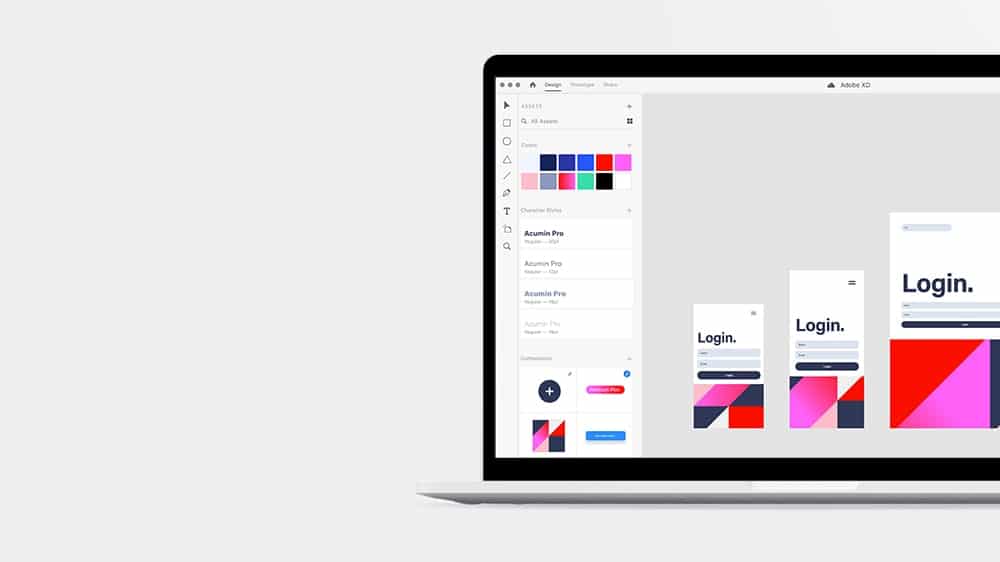
Although programs like Adobe XD, Figma or Sketch are not especially demanding and make good use of computer resources, the truth is that if your projects are complex, they will require more than the minimum requirements.
| Adobe XD | |
|---|---|
| Operating system: | Windows 10 (64-bit), v.1909 (19H2) or later. |
| Processor: | Not specified |
| RAM: | ≥ 4 GB |
| GPU: | Direct 3D DDI Feature Set: 10. For Intel GPU, drivers released in 2014 or later are necessary. |
| Monitor resolution: | 1280 x 800 or higher. The monitor must have at least 13″ |
| Free space required: | Cloud storage through Creative Cloud |
| Internet connection: | Necessary |
If you work in a team and do not need to personally create the images that you are going to use in your designs, you can stick to the minimum requirements. However, if you are going to use Adobe XD in combination with Photoshop or Illustrator, use a computer that meets the recommended requirements of the most demanding program of all that you will use.
I also recommend working with a much larger and higher resolution monitor than the one specified in the minimum requirements, this way you will be able to work at 1:1 scale when designing for tablets, for example. Check out our guide on the best monitors for programming, which are also great for web design, or our guide on budget monitors for designers.
Recommended PCs for Web Design programs
If you are going to buy a 4K monitor separately, then take a look at the best laptops for designers and enjoy the advantages of its portability. If you also want to test your designs in tablet format without buying an additional device, consider a convertible like the HP Pavillion x360 or a Microsoft Surface Pro 8.
Minimum requirements for 3D Design programs
The 3D programs tend to rely mainly on the graphics card, in addition to the RAM memory. For example, although Cinema 4D supports all graphics cards compatible with OpenGL 4.1 or Metal GPU Family1 v3, its manufacturer recommends using a dedicated 3D graphics card with a chipset AMD or NVIDIA.
| Cinema 4D | Blender | |
|---|---|---|
| Operating system: | Windows 10 64-bit (v. 1809 or higher) | Windows 8.1 or higher |
| Processor: | Intel or AMD with SSE3 support (Both 64-bit) | 4-core CPU (8-core recommended), 64-bit and SSE2-compatible |
| RAM: | 8 GB (≥ 16 GB recommended) | 8 GB (≥ 32 GB recommended) |
| GPU: | OpenGL graphics card supporting DirectX 12 with feature level 11.0 | OpenGL 4.3 compatible graphics card and 2 GB VRAM (≥ 8 GB VRAM recommended) |
| Monitor resolution: | ≥ 1080p | Full HD (2560×1440 recommended) |
| Free space required: | 10 GB | 500 MB |
| Internet connection: | Necessary | Necessary |
If you are starting in 3D Design your design capacity and needs will be lower than those of a professional, so the minimum requirements will be sufficient for you. On the contrary, if you are a professional, it is recommended that you exceed even the recommended requirements, opting for 32 GB of RAM and a next-generation dedicated graphics card such as the Asus Dual GeForce RTX (View on Amazon).
Recommended PCs for 3D Design programs
Since rendering times can overheat laptops, I’d leave them out in 3D Design, unless you choose to work with an external graphics card.
If you have a good monitor, the desktop computer MSI MEG Infinite X will more than meet your needs.

